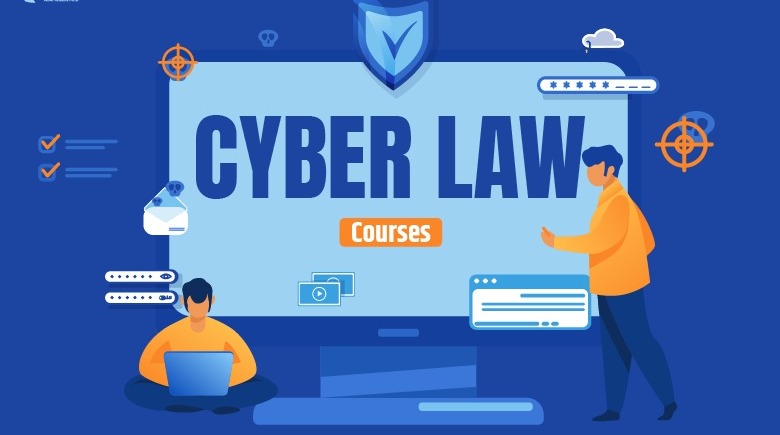Pranab Kumar Deb, J.@mdashThe three applications.
i) Filed by the defendant Nos. 1 and 2 for extension of time to file the written statement, and the two other applications filed by the defendant No.3 -
ii) For recall of the order for ex parte hearing of the suit.
iii) Applications for condonation of the delay in filing the written statement and also for leave to file Vakalatnama and the written statement are taken up together.
2. The instant suit was filed by the plaintiff, C.E.S.C. Ltd. for recovery of decree of Rs.25 crores against the defendants and perpetual injunction, restraining them from publishing derogatory and defamatory telecast against the plaintiff. It was alleged in the plaint that on or about 12th March, 2004 at about 10 p.m. the defendants telecast a program under the name and style ''Khoj Kabar'', alleging that C.E.S.C. Ltd. had unleashed of Mafia Giri and also resorted to brute force to achieve its end.
3. Following the presentation of the plaint and on the application made on behalf of the plaintiff, a Receiver was appointed. Alleging that the direction of the Court had been violated, a contempt proceeding was initiated. Contempt proceedings have drawn up against all the defendants. Challenging the finding of the learned single Judge, two separate appeals were preferred.
4. The appellate Court allowed the appeal preferred by defendant No.3 by exonerating defendant No. 3 from the liability in connection with contempt proceeding. The order passed by the learned single Judge against defendant Nos. 1 and 2 was, however, affirmed by the appellate Court. Challenging the finding of the appellate Court the defendant Nos. 1 and 2 preferred SLP. The SLP was allowed with liberty to the defendant Nos. 1 and 2 to file the written statement within three weeks of passing of the order.
5. Appearing on behalf of defendant Nos.1 and 2, Mr. Sandip Kumar Bhattacharyya has submitted that acting on the direction of the Apex Court, the defendant Nos. 1 and 2 actually verified and affirmed the affidavit on 6.11.2008. Ascertaining from the cause list that the matter was appearing as an ''undefended suit'', the petitioner enquired from the learned advocate-on-record as to why the matter had been listed as an ''undefended suit''. It was only then it could be ascertained that the original written statement had been kept by the learned advocate-on-record in his custody despite the verification and affirmation of the written statement having been made in the department. It is argued that the defendants should not be penalised for this, procedure/technical lapse relating to non-filing of the written statement by the learned advocate-on-record.
6. Referring to the provisions contained in Chapter VI (A) of the Original Side Rules of the High Court at Calcutta, Mr. Bhattacharyya has submitted that after the presentation of any pleadings to the Registrar or the Master, as the case may be, the same shall be placed before the stamp reporter and the stamp reporter will endorse thereon a report as to the sufficiency or otherwise of the stamp. It is contended by Mr. Bhattacharya that on such endorsement being made by the stamp reporter, the Court fee is also to be paid on the written statement. Since there was no provision for retaining is the written statement in the office of the stamp reporter, the written statement had to be taken back for the purpose of presentation before the Court. This is what erstwhile learned advocate-on-record failed to do.
7. Relying on the case of
8. Appearing on behalf of the defendant No.3, Mr. S. Roychowdhury has submitted that the copies of writ of summons and the plaint had never been served on the petitioners/defendant No.3. It is submitted that defendants No. 1 and 2 had no authority to receive the summons on behalf of defendant No. 3, inasmuch as the defendant No.3 had stopped anchoring for defendant No. 1 with effect from August 2005. It is contended by Mr. Roy chowdhary that since the copy of the plaint was never served on defendant, he did not have the opportunity to file the written statement.
9. Contending that the Apex Court had permitted the defendant Nos. 1 and 2, to file the written statement even at the belated state, Mr. Roy Chowdhury has submitted that the same privilege and liberty should b-extended to defendant No.3 also, otherwise he will not be in a position to defend his case properly.
10. Challenging the contention of both the defendants, Mr. Dhruba Ghosh, learned advocate appearing on behalf of the plaintiff, has submitted that the record would definitely indicate that summons was duly covered on all the defendants. It is contended that since defendant No.3 has not entered appearance in the suit, he is not entitled to be represented by advocates, \\ is also denied that vakalatnama could not be filed by him because of nonavailability of plaint or cause title. It is submitted that no effort whatsoever had been made by the defendant No.3 to defend the suit at the earlier stage
11. Challenging the contention of defendant Nos. 1 and 2 that the written statement had been verified and affirmed on 6.11.2008, Mr. Ghosh ha submitted that had the written statement been made ready on 6.11.2008 there was no earthly reason for them for taking seven weeks time to file the written statement. It is argued that since three weeks time granted by Ape Court had expired long ago, there should not be any question of further extension of time for filing of the written statement. Commenting on the contention of defendant Nos. 1 and 2 that the written statement had been kept in the custody of the then advocate-on-record, Mr. Ghosh has submitted that the defendant Nos. 1 and 2 ought to have verified and ascertained whether the written statement had really been filed in Court within the stip(sic) period granted by the Apex Court.
12. Mr. Ghosh has also relied on the case of M/s. Adittya Hotels (P) Limited v. Bombay Swadeshi Limited & Ors. (supra) and Jayshree Tea & Industries Limited v. General Magnets Limited in GA 2450 of 2007, CS 17 of 2001 to support his stand that the time schedule prescribed by Order VIII Rule 1 CPC has to be honoured. The defendant should be vigilant. No sooner the writ of summons is served on him, he should take steps for drafting his defence and filing the written statement on the appointed date of hearing without waiting for arrival of the date appointed in the summons for his appearance in Court. The extension can be only by way of exception and for reasons assigned by the defendant and also recorded in writing by the Court to its satisfaction. It must be spelled out that a departure from the time schedule was being allowed on exceptional circumstances beyond the control of the defendant.
13. Refuting the claim of the defendants, that the provisions laid down in Chapter VI(A) of the Original Side Rules are to be followed, Mr. Ghosh has submitted that in view of specific provision being provided in Chapter 9 of the Original Side Rules, the provision 6 as laid down in Chapter 9 are required to be followed. Mere stamping of the written statement will not confer any right on the defendant to present the written statement at a belated stage.
14. Challenging the order of the learned single Judge, an appeal was preferred. The finding of the learned single Judge against the defendant Nos. 1 and 2 was upheld by the appellate Court. Challenging the finding, SLP was preferred. In allowing the SLP (C) No. 20679 of 2008, the Apex Court observed that the hearing of the suit should be taken up expeditiously. It was observed that if notice of this suit had not been served upon the company, it might be done forthwith. Liberty was also given to the company to file written statement, if not already done, within three weeks from the date. The direction was issued on 20.10.2008. The written statement was affirmed and verified on 6.11.2008. It appears from the document itself that requisite stamp was also embossed the written statement. What the defendants 1 and 2 failed to do was to submit in Court after the verification and affirmation of the aforesaid written statement. The liberty to file the written statement was granted by the Apex Court long after the expiry of the schedule period. Within three weeks of the passing of that order, the written statement, as the record indicates, was verified. As underlined in the case of Rafiq &Anr. v. Munshilal &Anr. (supra), a person should not be made to suffer omission or misdemeanour of his counsel. The verification, as I have already mentioned, had been made within the stipulated period The defendant Nos. 1 and 2 should not be made to suffer for the delay in presentation of the written statement in Court after its verification. It is not a case of deliberate omission on the part of the defendant Nos. 1 and 2. If is one of the circumstances, considered to be beyond the control of the defendants 1 and 2. Unless the defendants are allowed to file the written statement, it will not get the opportunity to defend properly. Such extension of time, in my view, is required for the interest of justice.
15. So far as the application of defendant No.3 is concerned, it appears from the record and report of the sheriff that the writ of summons was never personally served upon him. The copy of the plant was served on the defendant Nos.1 and 2. The defendant No.3, as indicated in the record, worked with defendant Nos. 1 and 2 on contractual basis. There is nothing on record which gives the indication that copy of the plaint and the summons were handed to defendant No.3 by defendant No.3 by defendant Nos. 1 and 2. The Apex Court granted time to defendant Nos. 1 and 2 to file the written statement even after the lapse of four years after the presentation of plaint. Even after the incorporation of the amended provision of Order VIII Rule 1, the Court is empowered to accept written statement filed beyond the time, provided the delay has been properly accounted for. The defendant No.3 has explained to the satisfaction of the Court that it never had the occasion to go through the contents the plaint. There is nothing on record which gives the indication that writ of summons was ever served on him. Considering these aspects, the application made by defendant No. 3 for setting aside the ex parte hearing and for allowing him to file the written statement is allowed.
16. All the three applications filed on behalf of defendant Nos. 1, 2 and 3 are allowed, subject to defendant Nos. 1 and 2 paying a cost of Rs. 10,000/-and defendant No.3 paying a cost of Rs.3000. The amount of cost is to be paid in the name of Legal Services Authority within ten days. On such amount being paid, the written statements of the defendant Nos. 1, 2 and 3 respectively shall be accepted. Liberty is also given to defendant No.3 to file the vokalatnama in course of this day.
17. After passing of this order, prayer for stay of operation of this order for a period of seven days has been made by the learned counsel for the plaintiff. Prayer is considered and allowed.
18. Let the operation of the order be stayed for a period of seven days.
19. All parties are to act on a xerox signed copy of the operation portion of the minutes of this order on the usual undertakings.

